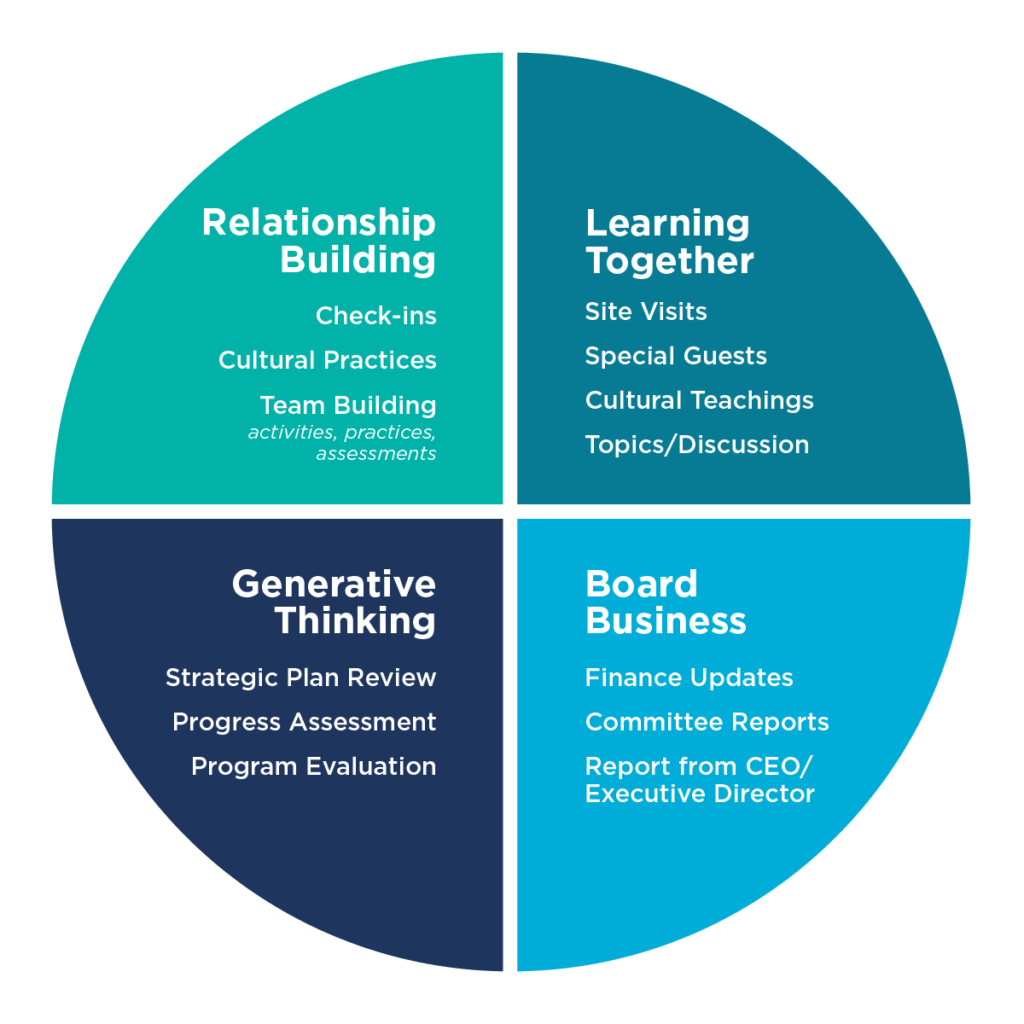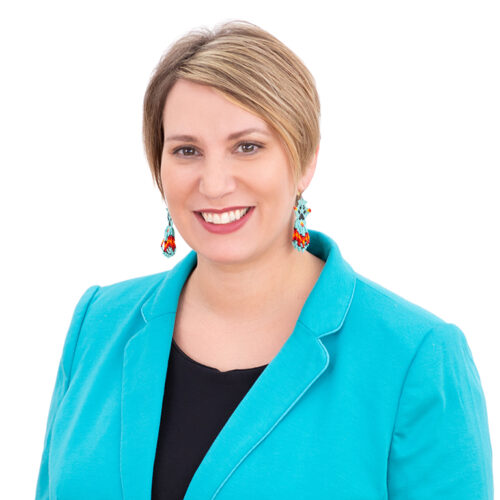Let’s Have Better Board Meetings

“The future is created one room at a time, one gathering at a time. Each gathering needs to become an example of the future we want to create.” I love this quote by Peter Block, an author and speaker on organizational development and community building. Nonprofit boards have critical responsibilities – leading strategically and ensuring financial stability to name just two. However, most of us have had the mildly painful experience of sitting through meeting after meeting that is distinctively status quo. Not only are these meetings tedious, they are a missed opportunity to leverage the expertise, creativity, and passion of the people in the room.
“Don’t underestimate the power of a great, well-led meeting to change the world…one room at a time.”
Amanda Ziebell Mawanda
I know that I tend to dis-engage from a meeting when I feel like nothing will be different because of my participation. I’m likely to feel this way when I sense my time is being wasted, when I am not asked to contribute or react to presented materials, or worst of all, when my input is asked for but not captured or acted upon. I suspect I am not alone. Like many board members, I am at the table because I want to be useful and I want to see something change in the world; in other words, I believe in the mission of the organization and want to help make it reality. But often our meeting structures keep us stuck and don’t provide a way for us to get from here to there: the future we want to see!
We need to start meeting in ways that are energizing and spur us to bring our best thinking and our best selves to the conversation. In addition to creating healthy group norms, it is the responsibility of those of us setting the table and setting the agendas to engage our board members fully. This largely falls on the shoulders of the board chair, but the following suggestions can be useful for anyone running a meeting. Here are some guidelines I use with clients:
Use these four quadrants to structure your meetings.

To create more engaging, generative, and effective meetings, I encourage groups to craft meeting agendas by keeping these four quadrants in mind:
- Relationship building
- Learning together (usually related to the programs, work or mission)
- Generative thinking (what big questions are facing the organization or the sector?)
- Board business (reports, financials, etc.)
These items are not mutually exclusive. For example, maybe you do the generative work of brainstorming new board members by doing a collaborative network mapping exercise together. You get to know your fellow members better while also creating useful suggestions for board recruitment. The key is that you are scheduling time for each of the quadrants and are being intentional about the ways they connect and reinforce each other.
View a board leadership transition as an opportunity to reimagine your meetings.
A change in board leadership is a perfect time to pause and reimagine how meetings can be more fruitful and engaging. Resist the urge to simply change the date on your old board agenda template. Instead, ask yourself these three key questions:
- What do you want the experience for meeting participants to be?
- Are there multiple ways for people to participate and engage in the meeting?
- How will the future be different because this group of people came together at this time and place?
Setting the agenda is an exercise in intention. Take the time you need to get it right.
Remember that creating a great, future-oriented meeting is a craft. Give yourself enough time to be thoughtful about it. When creating your agenda items, here are some key things to consider:
- Solicit input from other board members on the right topics/items.
- Use a consent agenda for items that are informational, but do not require input, discussion, or action.
- Consider what items may need more time for reflection or discussion before a decision is made. Introduce them 1-2 meetings before the decision point.
- Be clear about will be accomplished, decided, or different because you met.
If there is no real outcome or not enough action items that need to be acted upon, give yourself permission to cancel a meeting. A pointless meeting is worse than no meeting at all.
Back to Peter Block: “The key to creating or transforming community, then, is to see the power in the small but important elements of being with others. […] For at the most operational and practical level, after all the thinking about policy, strategy, mission, and milestones, it gets down to this: How are we going to be when we gather together?” I couldn’t say it better myself. Don’t underestimate the power of a great, well-led meeting to change the world…one room at a time.
There’s more to come on the subject of board meetings! Sign up for our monthly blog e-newsletter to stay posted.
Related Resources
Board Roles & Responsibilities
Legal compliance and financial oversight are certainly on the list of board responsibilities, but they’re not enough for effective governance….
Ten Dimensions That Shape Your Board Workbook
Tool designed to guide board discussion about cultural and developmental context and to recognize and consider alternative strategies to build…

